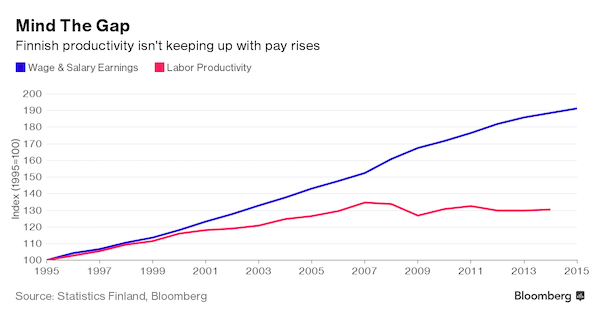
Harris&Ewing The White House kitchen, Washington DC 1909

Make that ALL Clintons.
• Democrats Should Ask Clinton To Step Aside (Kass)
Has America become so numb by the decades of lies and cynicism oozing from Clinton Inc. that it could elect Hillary Clinton as president, even after Friday’s FBI announcement that it had reopened an investigation of her emails while secretary of state? We’ll find out soon enough. It’s obvious the American political system is breaking down. It’s been crumbling for some time now, and the establishment elite know it and they’re properly frightened. Donald Trump, the vulgarian at their gates, is a symptom, not a cause. Hillary Clinton and husband Bill are both cause and effect. FBI director James Comey’s announcement about the renewed Clinton email investigation is the bombshell in the presidential campaign. That he announced this so close to Election Day should tell every thinking person that what the FBI is looking at is extremely serious.
This can’t be about pervert Anthony Weiner and his reported desire for a teenage girl. But it can be about the laptop of Weiner’s wife, Clinton aide Huma Abedin, and emails between her and Hillary. It comes after the FBI investigation in which Comey concluded Clinton had lied and been “reckless” with national secrets, but said he could not recommend prosecution. So what should the Democrats do now? If ruling Democrats hold themselves to the high moral standards they impose on the people they govern, they would follow a simple process: They would demand that Mrs. Clinton step down, immediately, and let her vice presidential nominee, Sen. Tim Kaine of Virginia, stand in her place.
Democrats should say, honestly, that with a new criminal investigation going on into events around her home-brew email server from the time she was secretary of state, having Clinton anywhere near the White House is just not a good idea. Since Oct. 7, WikiLeaks has released 35,000 emails hacked from Clinton campaign boss John Podesta. Now WikiLeaks, no longer a neutral player but an active anti-Clinton agency, plans to release another 15,000 emails. What if she is elected? Think of a nation suffering a bad economy and continuing chaos in the Middle East, and now also facing a criminal investigation of a president. Add to that congressional investigations and a public vision of Clinton as a Nixonian figure wandering the halls, wringing her hands.

I read about this before but couldn’t get it verified when writing my article yesterday. But it’s apparently true: the DOJ may deny the FBI a warrant to look into the emails. They should try. Meanwhile, I wrote the article this morning: James Comey, American Hero.
• FBI Still Does Not Have Warrant To Review New Abedin Emails (Yahoo)
When FBI Director James Comey wrote his bombshell letter to Congress on Friday about newly discovered emails that were potentially “pertinent” to the investigation into Hillary Clinton’s private email server, agents had not been able to review any of the material, because the bureau had not yet gotten a search warrant to read them, three government officials who have been briefed on the probe told Yahoo News. At the time Comey wrote the letter, “he had no idea what was in the content of the emails,” one of the officials said, referring to recently discovered emails that were found on the laptop of disgraced ex-Rep. Anthony Weiner, the estranged husband of top Clinton aide Huma Abedin. Weiner is under investigation for allegedly sending illicit text messages to a 15-year-old girl.
As of Saturday night, the FBI was still in talks with the Justice Department about obtaining a warrant that would allow agency officials to read any of the newly discovered Abedin emails, and therefore was still in the dark about whether they include any classified material that the bureau has not already seen. “We do not have a warrant,” a senior law enforcement official said. “Discussions are under way [between the FBI and the Justice Department] as to the best way to move forward.” That Comey and other senior FBI officials were not aware of what was in the emails – and whether they contained any material the FBI had not already obtained – is important because Donald Trump’s campaign and Republicans in Congress have suggested that the FBI director would not have written his letter unless he had been made aware of significant new emails that might justify reopening the investigation into the Clinton server.
But a message that Comey wrote to all FBI agents Friday seeking to explain his decision to write the controversial letter strongly hinted that investigators did not not yet have legal authority establishing “probable cause” to review the content of Abedin’s emails on Weiner’s electronic devices.

“FBI officials were also concerned that if they didn’t act, the information might leak out anyway, in a less controlled manner”. Again, see James Comey, American Hero.
• DOJ Officials Warned FBI’s Comey About Sending Letter on Clinton Emails (WSJ)
Justice Department officials warned FBI Director James Comey that his letter to Congress about newly discovered emails potentially related to an investigation of Hillary Clinton would contradict the department’s long-established election policy, according to people familiar with the discussions. Mr. Comey acted “independently” when he decided to send the letter, the people said. The FBI is reviewing newly obtained emails linked to its previously closed investigation into Mrs. Clinton’s handling of classified information as secretary of state. Friday’s announcement came just days before voters to go to the polls to choose a new president.
Before the letter was sent, the FBI told senior Justice Department officials what Mr. Comey planned to do, and those officials warned that doing so would contradict the department’s rules against taking steps that could influence—or be seen as trying to influence—an election, these people said. Mr. Comey, however, decided it was better to share the information rather than face possibly greater criticism for keeping quiet until after the election, according to the people familiar with the discussions. FBI officials were also concerned that if they didn’t act, the information might leak out anyway, in a less controlled manner, these people said.
[..] The emails in question were found during the search of a device in the FBI probe of former Rep. Anthony Weiner, a New York Democrat, who is being investigated for allegedly sending sexually explicit messages to a minor. Many of the emails were discovered on a laptop used by both Ms. Abedin and Mr. Weiner, according to people familiar with the matter. In searching the laptop, investigators found thousands of emails, and they determined earlier this week that some of the emails involved Ms. Abedin discussing work issues. Authorities haven’t yet determined how many emails involved such work discussions or if any of those included classified information, these people said. They also haven’t determined if the work emails in question are copies of messages already reviewed by the FBI.

Should be start to feel pity for here? Abused both at work and at home?
• Huma Abedin ‘Doesn’t Know How Emails Wound Up On Husband’s Computer’ (WaPo)
Top Hillary Clinton aide Huma Abedin has told people she is unsure how her emails could have ended up on a device she viewed as her husband’s computer, the seizure of which has reignited the Clinton email investigation, according to a person familiar with the investigation and civil litigation over the matter. The person, who would not discuss the case unless granted anonymity, said Abedin was not a regular user of the computer, and even when she agreed to turn over emails to the State Department for federal records purposes, her lawyers did not search it for materials, not believing any of her messages to be there.
That could be a significant oversight if Abedin’s work messages were indeed on the computer of her estranged husband, former congressman Anthony Weiner, who is under investigation for allegedly exchanging lewd messages with a 15-year-old girl. So far, it is unclear what — if any — new, work-related messages were found by authorities. The person said the FBI had not contacted Abedin about its latest discovery, and she was unsure what the bureau had discovered. According to federal law enforcement officials, investigators found thousands of messages on Weiner’s computer that they believe to be potentially relevant to the separate, Clinton email investigation. How they are relevant — or if they are significant in any respect — remains unknown.

If/when the entire story gets out, we’re not going to believe it. Or rather, that his person ran for/became president.
• Clinton Hid Email Scandal From Her Own Staff (WE)
Hillary Clinton’s closest aides hid the private email scandal from her campaign team in the months before the official launch of her presidential campaign, emails made public by WikiLeaks show. Robby Mook, Clinton’s campaign manager, John Podesta, Clinton’s campaign chair, and Neera Tanden, co-chair of Clinton’s transition team, each expressed shock at the revelations about her private server as they emerged in early March 2015. Although Clinton’s team had performed research on her in 2014 as staff prepared for her campaign, Clinton’s inner circle apparently steered Mook and others away from the issue until it was too late. When Podesta asked Mook if he had “any idea of the depth of this story,” Mook answered simply, “Nope.”
“We brought up the existence of emails in reserach [sic] this summer but were told that everything was taken care of,” Mook added in his email reply. Although how Mook approached the emails with researchers in 2014 is not entirely clear, the exchange provides more evidence that Clinton’s team set up her server with the intent to conceal emails from the Freedom of Information Act given their expectation that she would run again for president. In an email to Podesta in July 2015, Tanden hinted that the results of an upcoming CNN poll would likely show Sen. Bernie Sanders, Clinton’s primary opponent, ahead among Democratic voters. “Do we actually know who told Hillary she could use a private email? And has that person been drawn and quartered?” Tanden joked. “Like whole thing is f***g insane.”
Podesta said their party would have to be “suicidal” to consider nominating Sanders over Clinton. A number of the emails obtained illegally form Podesta’s inbox and published in 20 batches by WikiLeaks have exposed the Clinton campaign’s struggle to confront the controversy over Clinton’s private server. A few days after stories about Clinton’s personal email use broke for the first time, Philippe Reines, a longtime Clinton aide, admitted “there is just no good answer” to questions about her server. Later, Tanden pressed Podesta on why Clinton’s team did not disclose their private emails months earlier in order to avoid such a massive distraction around the time of her campaign kickoff. “[I] guess I know the answer,” Tanden said. “[T]hey wanted to get away with it.”

And now for something completely different.
• The First 100 Days Of A Trump White House: Sea Change (AFP)
Donald Trump believes he will score a “tremendous” victory on November 8. If he does, the Republican presidential candidate has indicated he will bring vast change in America during his first 100 days in office. At a recent campaign rally in North Carolina, he promised “a very busy first day,” adding: “The change will begin my first day in office.” The 70-year-old Manhattan real estate mogul, who insists the country suffers from a “rigged” political system, has pledged to “make America great again” with two key ideas: jumpstarting the economy and bolstering national security. He is certainly not without ideas. Trump offered a list of them on October 22 in his own “Gettysburg address” at the same place where Abraham Lincoln tried to unite a divided nation during the Civil War in 1863.
From the first day, Trump has pledged in his “revolutionary Contract with the American Voter” to renegotiate NAFTA and withdraw from the Trans-Pacific Partnership. He plans to lift restrictions on producing fossil fuels, relaunch the Keystone XL oil pipeline project put on hold by President Barack Obama, and cancel billions of dollars in payments to UN climate change programs. The billionaire will work to “begin removing the more than two million criminal illegal immigrants from the country and cancel visas to foreign countries that won’t take them back.” He would “suspend immigration from terror-prone regions where vetting cannot safely occur” and carry out “extreme vetting” of those seeking to enter the country. “Our campaign represents the kind of change that only arrives once in a lifetime,” he said.
Trump has also vowed to “drain the swamp” of what he sees as systemic corruption in Washington – impose term limits on members of Congress, freeze federal hiring and ban lawmakers and White House staff from becoming lobbyists for five years. He also has promised to “cancel every unconstitutional executive action” undertaken by Obama. Despite his tense ties with the Republican Party, which for now controls both houses of Congress, Trump says he will work with lawmakers to introduce and pass legislation that would see at least 25 million jobs created in a decade.

The dark days are coming to the north.
• Finland’s Millionaire Premier Freezes Pay in Bid to Save Economy (BBG)
The Nordic region’s only euro member is still struggling with austerity. After being stripped of its top AAA credit grade at all three major ratings companies, the government is asking Finns to tighten their belts to keep up with the Germans and the Swedes, who are more productive exporters. Failure to do so will jeopardize Finland’s path away from economic limbo and growing indebtedness, the government warns. Prime Minister Juha Sipila, a self-made millionaire who won elections last year on pledges to reinvigorate Finland’s ailing post-Nokia economy, says exports are the key to economic success. But that requires Finns to produce more without getting more pay if the nation is to close a competitiveness gap as wide as 15 percent relative to its main trading partners.
“We’re behind our main competitor countries,” Sipila said in an interview in Helsinki on Wednesday. “Our problem is that exports are lagging and that growth relies on domestic demand.” But if the economy is to recover, “exports should become the growth motor again.” Finland has been trapped in a low-growth cycle since exiting a series of economic contractions in 2015. Its once dominant paper industry has succumbed to the advent of digital media. The poster child of its consumer technology boom, Nokia Oyj, sold its handset unit off to Microsoft in 2013 after failing to see the potential of smart phones. And the economic crisis in Russia, with whom Finland shares the EU’s longest border, has battered trade.


Maybe not that bad if they get some more time to learn the ropes.
• Iceland Pirate Alliance Falls Short Of Majority (G.)
With about 80% of votes counted, the Pirates, founded four years ago by a group of activists, anarchists and former hackers, and their three left-of-centre partners held 27 seats – five short of a majority in the country’s 63-seat parliament. The Independence party won nearly 30% of the vote, significantly more than pre-election polling had predicted, and with its coalition partner of the past three years, the Progressive party, looks set to end up with 29 seats. “I cannot deny that if the results stay this way … it would be natural that we are a leading party in the next government,” said the leader of the Independence party, Bjarni Benediktsson, one of the its 21 MPs. In a campaign dominated by widespread public discontent with the country’s traditional elites and desire for political reform, the Independence party pledged to lower taxes and keep Iceland’s economic recovery on track.
The preliminary results mean the seven MPs from the newly established, liberal Regeneration party, which split from the Independence party over the issue of Europe earlier this year, could be kingmakers – making coalition negotiations more tricky than usual. Riding a wave of public anger at what many see as endemic political corruption in the wake of the 2008 financial crash and the Panama Papers scandal in April, the Pirates had been predicted to score as high as 20% and possibly even become Iceland’s largest party. But the party’s co-founder, Birgitta Jónsdóttir, an activist, poet and former WikiLeaks collaborator, said it was satisfied with the result, which saw it finish second equal on more than 14% of the vote and with 10 MPs – more than three times as many as in the previous 2013 elections.

Britain is ruled by vile allegations wherever you look. ‘He never seems to want to recognize the result of the referendum and get on with it. It looks like he is a sore loser.’
• Mark Carney Could Quit His Bank of England Role Within Days (DM)
Mark Carney’s days as Governor of the Bank of England appear to be numbered amid rumours he could resign within days. The Canadian – who has been a controversial figure since the Brexit vote as many of his ‘Project Fear’ predictions are yet to materialise – could elect to return to his homeland next year due to family reasons. A decision will be made before the end of the year and could be announced at the Bank’s quarterly inflation report next Thursday. Tory MP Jacob Rees-Mogg, a Treasury Select Committee member and one of Dr Carney’s most outspoken critics, has been touted as a potential replacement, according to Bloomberg.
Mr Rees-Mogg said earlier this month: ‘On every occasion he wants to talk down the economy and find doom and gloom, which doesn’t seem to me to be the job of the governor of the Bank of England. ‘He never seems to want to recognize the result of the referendum and get on with it. It looks like he is a sore loser.’ Just days ago, Dr Carney delivered a stark warning in the House of Lords that interfering with the independence of the Bank of England could send sterling into a fresh tailspin. In an apparent dig at Theresa May, the governor said markets had ‘taken note’ when politicians criticised monetary policy in the past.

I lost count, I must admit. How they keep the country going, no idea.
• Turkey Fires Another 10,000 Civil Servants In Post-Coup Purge (AFP)
Turkish authorities have fired over 10,000 additional civil servants as the government presses a crackdown over the failed July coup, the official gazette said. A total of 10,131 government employees were removed, mainly from the education, justice and health ministries, according to announcements published late Saturday. The government also announced the closure of 15 pro-Kurdish and other media outlets. University rector elections have also been suspended, with President Recep Tayyip Erdogan set to pick the winners from a pool of candidates selected by the nation’s education authority. The moves came three months after the government declared a state of emergency following a failed bid by a rogue faction of the army to oust Erdogan. More than 35,000 people have been arrested since then, and many dozens of teachers, police officers and judges have either been suspended or fired.

Blood and circus.
• Erdogan Says Turkey Soon Will Bring Back Death Penalty (AP)
Turkish President Recep Tayyip Erdogan says the government will soon submit a bill to Parliament to reinstate the death penalty amid calls for the execution of the plotters of a failed coup in July. Addressing crowds in Ankara on Saturday, Erdogan said he would ratify such a bill once it passed despite any objections it might spark in the West. Erdogan made the comments in response to public chants calling for the death penalty, which Turkey abolished in 2004 as part of its bid to join the European Union. Erdogan said: “Soon, our government will bring (the bill) to Parliament…It’s what the people say that matters, not what the West thinks.” �

Excuse me, but does this surprise anyone? It’s what’s going to happen everywhere, no matter what any ‘leader’ says.
• UK Taxpayers Will Pick Up Costs Of Hinkley Nuclear Waste Storage (G.)
Taxpayers will pick up the bill should the cost of storing radioactive waste produced by Britain’s newest nuclear power station soar, according to confidential documents which the government has battled to keep secret for more than a year. The papers confirm the steps the government took to reassure French energy firm EDF and Chinese investors behind the £24bn Hinkley Point C plant that the amount they would have to pay for the storage would be capped. The Department for Business, Energy & Industrial Strategy – in its previous incarnation as the Department for Energy and Climate Change – resisted repeated requests under the Freedom of Information Act for the release of the documents which were submitted to the European commission.
“The government has attempted to keep the costs to the taxpayer of Hinkley under wraps from the start,” said Dr Doug Parr, Greenpeace chief scientist. “It’s hardly surprising as it doesn’t look good for the government’s claim that they are trying to keep costs down for hardworking families.” But, earlier this month, on the very last day before government officials had to submit their defence against an appeal for disclosure of the information, the department released a “Nuclear Waste Transfer Pricing Methodology Notification Paper”. Marked “commercial in confidence”, it states that “unlimited exposure to risks relating to the costs of disposing of their waste in a GDF [geological disposal facility], could not be accepted by the operator as they would prevent the operator from securing the finance necessary to undertake the project”.
Instead the document explains that there will be a “cap on the liability of the operator of the nuclear power station which would apply in a worst-case scenario”. It adds: “The UK government accepts that, in setting a cap, the residual risk, of the very worst-case scenarios where actual cost might exceed the cap, is being borne by the government.”

OK, now kick ’em out. It’s taken far too long already.
• The Broken Promise of Genetically Modified Crops (NY Times)
The controversy over genetically modified crops has long focused on largely unsubstantiated fears that they are unsafe to eat. But an extensive examination by The New York Times indicates that the debate has missed a more basic problem — genetic modification in the United States and Canada has not accelerated increases in crop yields or led to an overall reduction in the use of chemical pesticides. The promise of genetic modification was twofold: By making crops immune to the effects of weedkillers and inherently resistant to many pests, they would grow so robustly that they would become indispensable to feeding the world’s growing population, while also requiring fewer applications of sprayed pesticides.
Twenty years ago, Europe largely rejected genetic modification at the same time the United States and Canada were embracing it. Comparing results on the two continents, using independent data as well as academic and industry research, shows how the technology has fallen short of the promise. An analysis by The Times using United Nations data showed that the United States and Canada have gained no discernible advantage in yields — food per acre — when measured against Western Europe, a region with comparably modernized agricultural producers like France and Germany. Also, a recent National Academy of Sciences report found that “there was little evidence” that the introduction of genetically modified crops in the United States had led to yield gains beyond those seen in conventional crops.

At the same time, herbicide use has increased in the United States, even as major crops like corn, soybeans and cotton have been converted to modified varieties. And the United States has fallen behind Europe’s biggest producer, France, in reducing the overall use of pesticides, which includes both herbicides and insecticides. One measure, contained in data from the United States Geological Survey, shows the stark difference in the use of pesticides. Since genetically modified crops were introduced in the United States two decades ago for crops like corn, cotton and soybeans, the use of toxins that kill insects and fungi has fallen by a third, but the spraying of herbicides, which are used in much higher volumes, has risen by 21%. By contrast, in France, use of insecticides and fungicides has fallen by a far greater %age – 65% – and herbicide use has decreased as well, by 36%.
The potential harm from pesticides, however, has drawn researchers’ attention. Pesticides are toxic by design – weaponized versions, like sarin, were developed in Nazi Germany – and have been linked to developmental delays and cancer. “These chemicals are largely unknown,” said David Bellinger, a professor at the Harvard University School of Public Health, whose research has attributed the loss of nearly 17 million I.Q. points among American children 5 years old and under to one class of insecticides. “We do natural experiments on a population,” he said, referring to exposure to chemicals in agriculture, “and wait until it shows up as bad.” The industry is winning on both ends – because the same companies make and sell both the genetically modified plants and the poisons. Driven by these sales, the combined market capitalizations of Monsanto, the largest seed company, and Syngenta, the Swiss pesticide giant, have grown more than sixfold in the last decade and a half.











